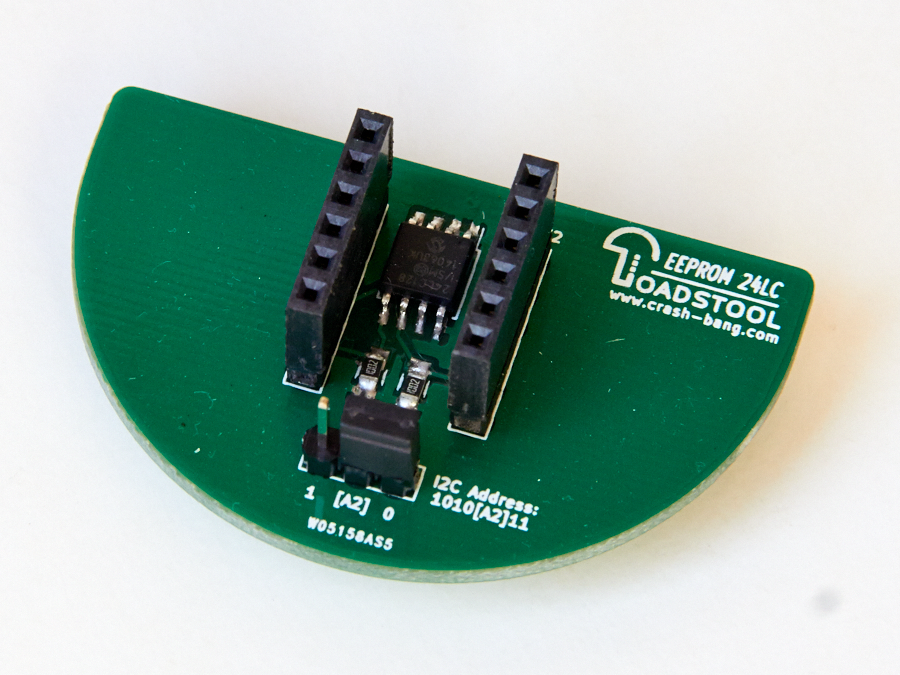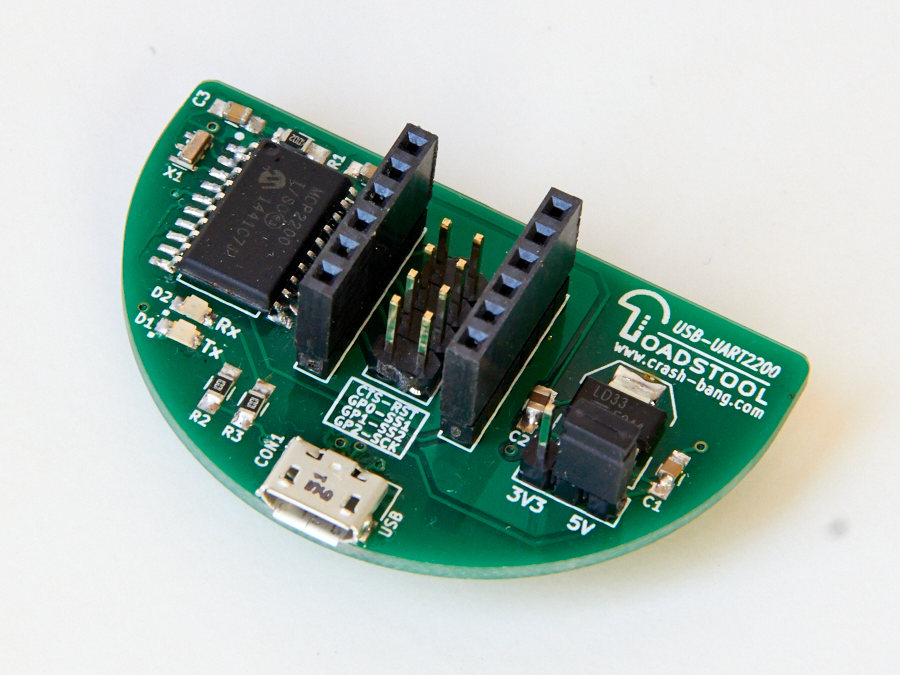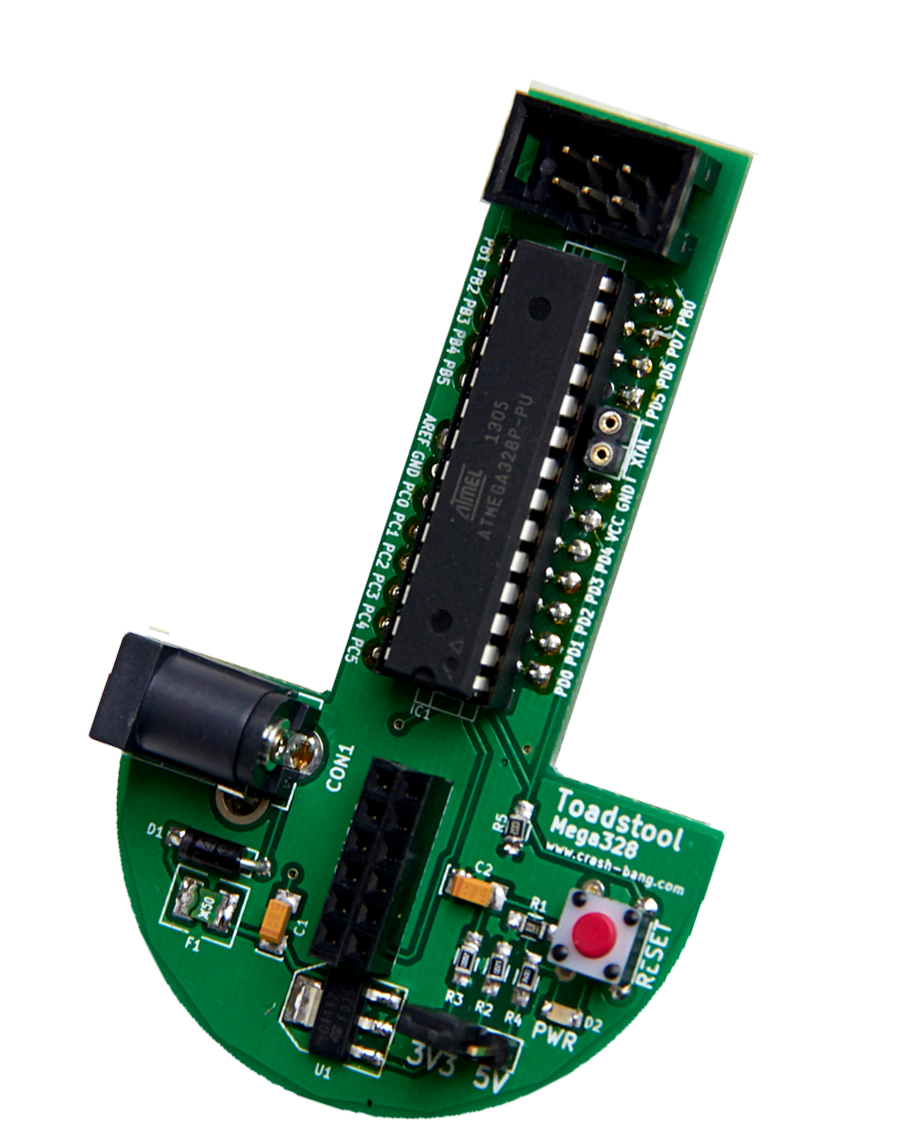I wanted to achieve a few things with the Toadstool:
- Win back the flexibility that some dev boards (like the Arduino) don't give you
- Plug directly into a breadboard to make breadboard-based MCU projects quick to get going
- Allow a range of microcontrollers to be used
- Allow I2C, SPI and UART breakout modules to easily be connected to any of the Toadstool boards
Currently there are 2 Toadstool boards in the works:
- Toadstool mega328: Based on the Atmel ATmega328P
- Toadstool MSPg2553: Based on the TI MSP430G2553
Key design features:
- The shape: move all the supporting components out of the way of the breadboard, to maximise use of the limited breadboard space.
- Power: an on-board regulated power supply, allowing you to select the operating voltage. Polarity and over-current protection./
- Speed: Select the crystal that works best for your specific project (ATmega only)
- DIP: Where possible I'll be using DIP packages. A little more bulky, but you can switch your MCU out.
- CAPs: Breakout modules can be connected to a standard I2C/SPI/UART header
Toadstool CAPs
These are the breakout modules that connect to the board's common header. Here's a cap, and how it connects:
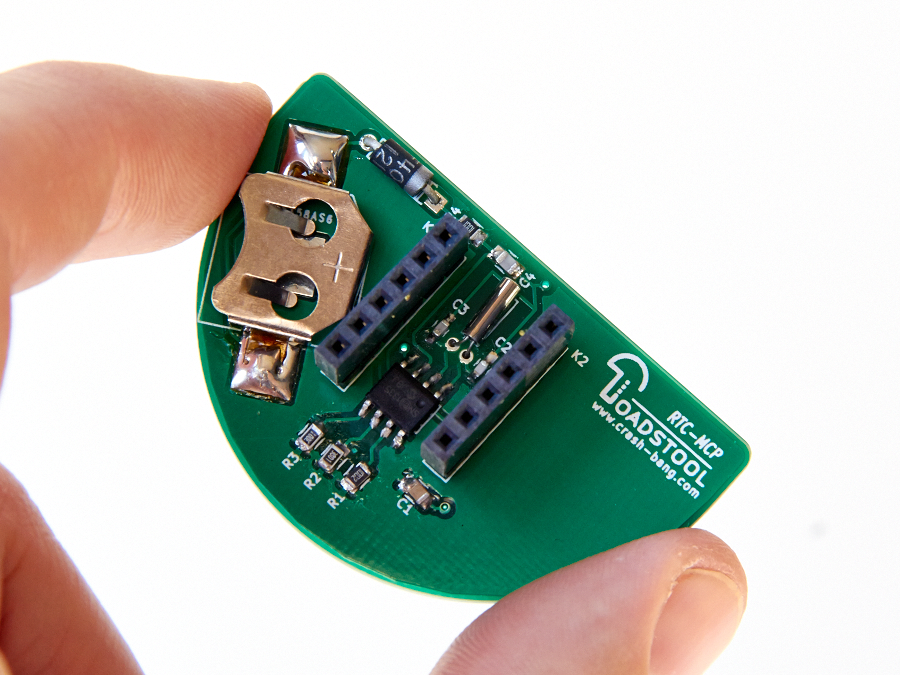
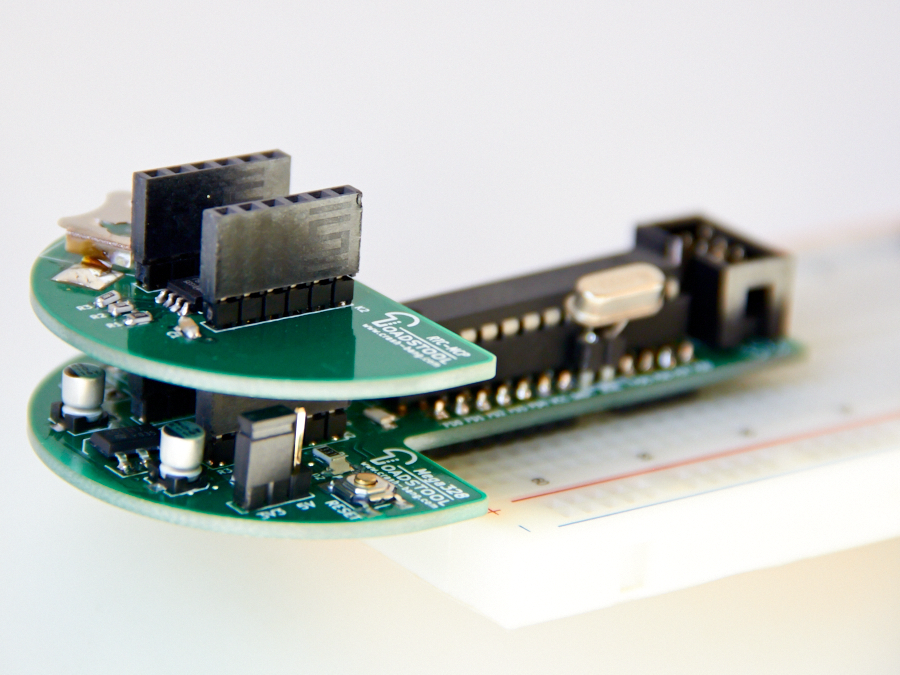
Currently working on :
- EEPROM 24LC: an I2C interface EEPROM module (Microchip 24LC128)
- RTC MCP79400: an Real Time Clock modules (Microchip MCP79400)
- USB-UART 2200: a USB to UART converter (Microchip MCP2200)
I'll keep updates coming in the project log. Thanks for the interest!
 Andrew Retallack
Andrew Retallack
